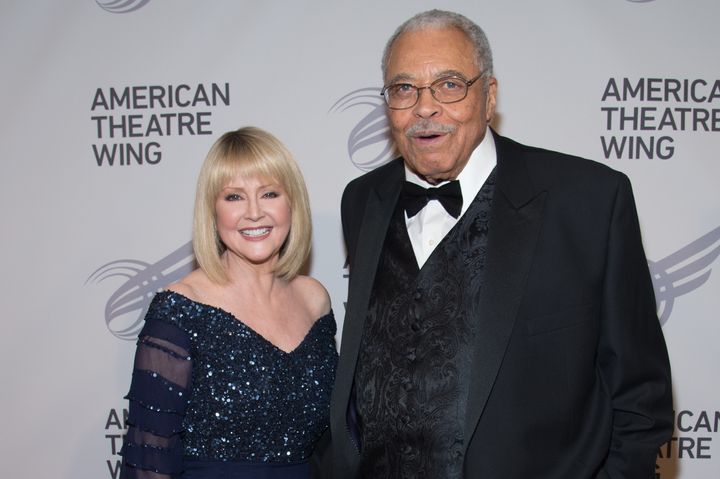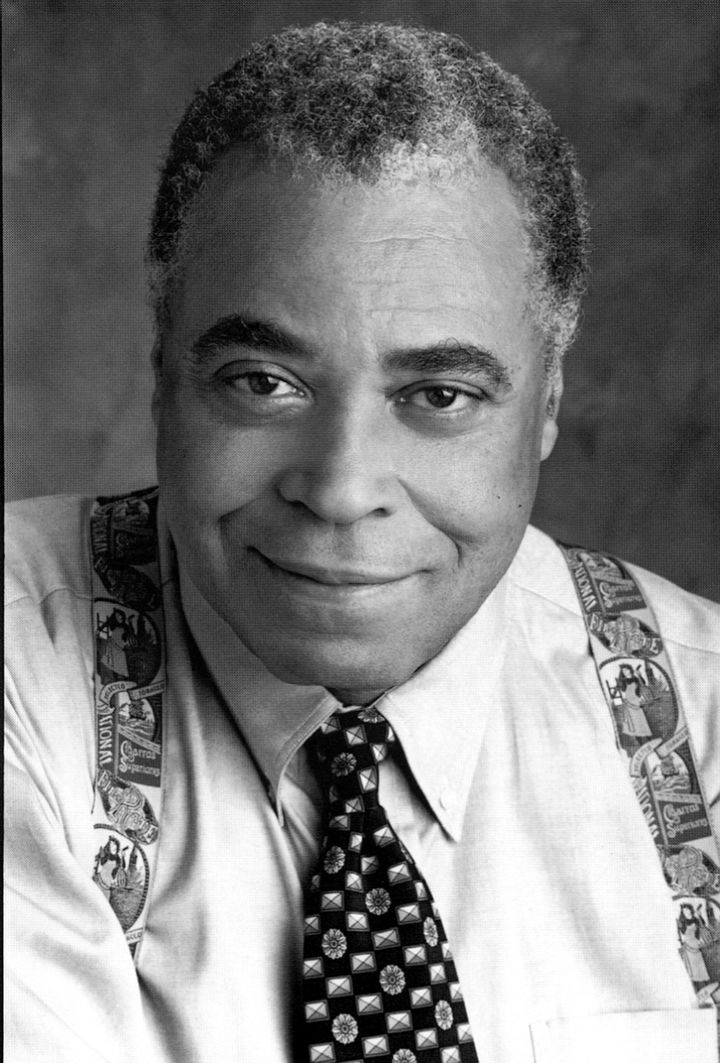The award-winning actor James Earl Jones died Monday at his home in Dutchess County, New York. He was 93.
Deadline was the first to report the news, which was confirmed by Jones’ representatives at Independent Artist Group.
The prolific actor’s signature deep, rumbling voice gave life to iconic movie characters, such as Darth Vader in “Star Wars” and Mufasa in both the 1994 and 2019 versions of Disney’s “The Lion King.”
Jones, born in Arkabutla, Mississippi, in 1931, was the son of Broadway actor Robert Earl Jones and Ruth Connolly Jones.
His father left the family after he was born, first pursuing a career as a boxer and then as an actor.
His mother had to spend time away from her son to support the family, and Jones’ maternal grandparents adopted him and brought him with them when they moved to Michigan.

Mark Sagliocco via Getty Images
Jones said he was often quiet as a child because of a stutter, an experience he said helped teach him how to listen to others.
“I found it was oh so good sometimes because silence isn’t bad,” he told PBS in 2014. “It’s good to listen. And I learned to listen.”
In high school, Jones found that he typically did not stutter when reading aloud, he noted in a 1994 memoir. That revelation helped lead to an interest in performing, and he ultimately studied drama at the University of Michigan. However, he noted in several interviews as an adult that he still considered himself a stutterer.
“I just work with it,” he told NPR in 2014.
The Army recruited Jones in 1953, and he served two years and became a second lieutenant. He left after an officer recommended that he try out civilian life before committing to the military as a career. Jones took a night job as a janitor to support himself as he spent his days auditioning for parts in New York City.
Jones found success in the New York theater scene relatively quickly. By 1963, he was starring in an off-Broadway production of “Othello.” That same year, he made his first film appearance as Lt. Lothar Zogg in Stanley Kubrick’s “Dr. Strangelove,” and was nominated for an Emmy for Outstanding Guest Actor in a Drama Series for the role of Joe Goodwin in the TV series “East Side/West Side.”
Jones married actress Julienne Marie in 1968, though the pair divorced four years later. In 1982, he married actress Cecilia Hart, whom he met on the set of the 1979 TV series “Paris.” They had a son, Flynn Jones, and were married for 34 years, until Hart’s death from ovarian cancer in 2016.

Throughout his prolific career acting on TV, in films and onstage, he was showered with awards and nominations, including a Golden Globe, two Tonys and two Primetime Emmys.
He was honored in 2009 with a Screen Actors Guild Life Achievement Award, and in 2011 received an Honorary Academy Award, a tribute given for lifetime achievement and “exceptional contributions” to film.
Jones, however, continued to take on new roles, appearing in numerous projects that included a 2014 return to Broadway to star in a revival of “You Can’t Take It With You” and in a revival of “The Gin Game” in 2015.
He also continued to voice some of his best-known characters, including reprising his role as Darth Vader in 2016’s “Rogue One: A Star Wars Story” and 2019’s “Star Wars: The Rise of Skywalker” and as Mufasa in 2019’s photorealistic version of “The Lion King.” Director Jon Favreau said he viewed bringing Jones back to voice Mufasa as “carrying the legacy” of the original animated movie and called the experience of hearing Jones say his famous lines “moving and surreal.”
Support Free Journalism
Already contributed? Log in to hide these messages.
Jones also approved for his voice to be recreated for future Star Wars projects, a process that was first used for 2022′s Disney+ “Obi-Wan Kenobi” series.
He reprised his role as King Jaffe Joffer from “Coming to America” in its 2021 sequel, “Coming 2 America.” In 2022, a Broadway theater was renamed the James Earl Jones Theatre in his honor.
After decades of accolades, Jones said in 2014 that he simply felt “fortunate” to be able to pursue something he loved.
“There was nobody [who was] supposed to be well-known in our family,” he said. “That was not supposed to happen. Something odd about it.”
Support Free Journalism
Already contributed? Log in to hide these messages.
